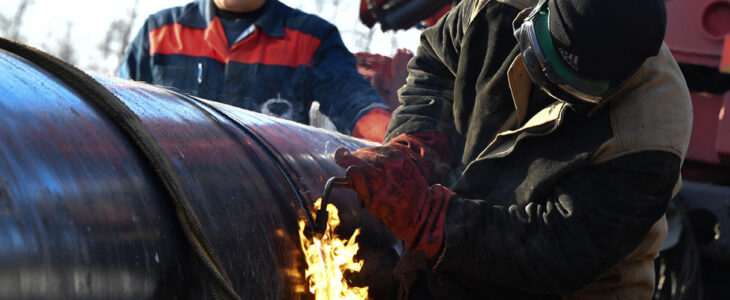
Belarus has announced “unscheduled repairs” are needed on a branch of the ‘Friendship’ pipeline carrying oil supplies from Russia through the country to a number of EU states, insisting that maintenance work will take three days.
In a statement issued on Wednesday, Russian energy export giant Transneft said supplies could face short-term disruption. Spokesman Igor Demin told journalists he had been informed the impromptu repair work should be finished by the weekend. The pipeline connects oil fields in Central Russia to consumers in Poland, Hungary, Czechia and Germany.

The Belarusian operator, Gomeltransneft Druzhba, reportedly began work on Tuesday evening, with supplies set to decrease. However, officials say, monthly export volumes shouldn’t be affected, and Demin insisted Transneft hopes to ensure its delivery quotas are met.
The news comes just days after Belarus’ embattled leader, Alexander Lukashenko, warned that his country could cut off gas flowing to Central and Western Europe in response to a worsening row over illegal migration on the border with Poland.

Thousands of refugees have set up camps along the frontier, with the EU accusing Minsk of putting on flights from troubled nations like Syria and Iraq, and encouraging desperate people to try to cross over in retribution for sanctions levied against its government. Belarus denies the claims, insisting that it is simply no longer able to prevent migrants reaching the border.
Lukashenko said last week that, when considering potential future sanctions, European leaders should remember that he could “cut off” energy supplies through the Yamal-Europe pipeline, which delivers gas from Siberia to Germany and other EU states.
The suggestion that the country could begin restricting Russian gas exports prompted criticism on Saturday from President Vladimir Putin, who said that “nothing good will come” from the suggestions. “It will be a violation of our transit agreement, and I hope it will not come to that,” the Russian leader added.
On Monday, European Commission President Ursula von der Leyen asked EU member states to approve additional sanctions against Belarus over what she said was a “hybrid attack” on the bloc. Meanwhile, Lukashenko has accused Brussels of engaging in a hybrid war of its own against his country by supporting Belarusian opposition figures and media outlets based abroad.
Credit: RT News
